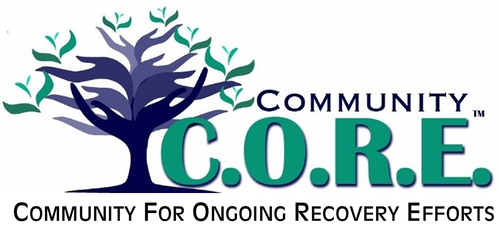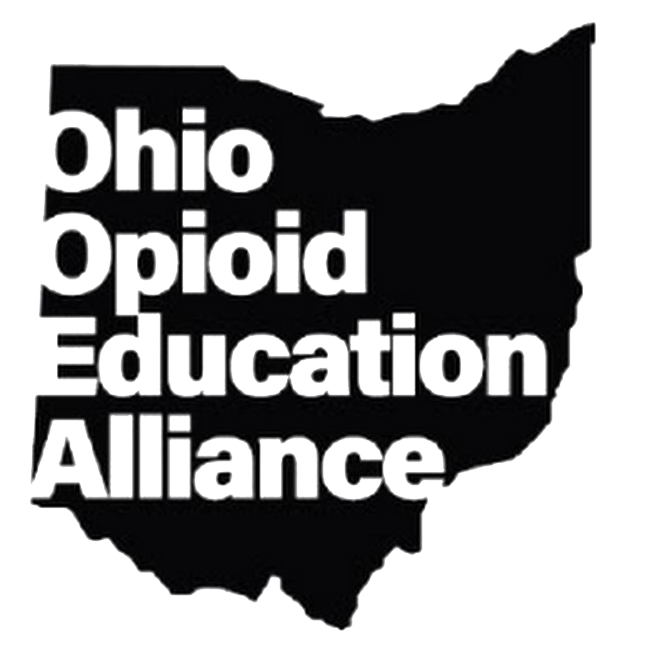|
Got Drugs? Mary Rutan Hospital, Bellefontaine Police Department, and Community C.O.R.E. in conjunction with the Drug Enforcement Agency, encourage all Logan County citizens to dispose of unused or expired prescription medication to reduce access to prescription drug misuse in our community. Drop off medications during our spring medication take back day, Saturday, April 29, 2017 from 11am-1pm at Mary Rutan Hospital. Dropping off medication is easy - pull up, pull through the canopy at the hospital, and dispose - you don't even have to get out of your vehicle. Pills, patches, and sharps will be accepted. Please place sharps in a covered container to reduce the risk of puncture. No inhalers or liquids will be accepted. For more information call 599-7005 or 465-1045.
Can't make it on the 29th? Use our permanent drug drop boxes for disposal year round. Drop boxes are located at the Logan County Sheriff's Office, 295 Co. Rd. 32 S., Bellefontaine, available 24/7/365 and Russel's Point Police Department, 433 Orchard Island Rd., Russell's Point, available Mon/Tues/Thurs/Friday 9am-4:30pm. Without question, Talking With Your Children is extremely important in our efforts to protect our kids from alcohol and drugs. But there are other things that we need to do as parents to be effectively involved in preventing alcohol and drug problems for our kids and in our families.
Before we review our Ten Tips for Parents, there are two important points to be aware of: 1. Why is there so much focus on keeping kids alcohol and drug free? Recent scientific research has found that the longer an individual postpones the onset (first use) of alcohol, tobacco or other drug use, the less likely the individual is to develop an addiction or other lifelong problems, including depression. 2. The Power of Parents: Believe it or not, parents are the most powerful influence on their kids when it comes to drugs. Recent research has found that 2 out of 3 kids ages 13-17 say that losing their parents' respect is one of the main reasons they don't drink alcohol, smoke marijuana or use other drugs. So then, as a parent, what can I do use my influence to encourage or promote prevention efforts with my children? Here are Ten Tips for Parents: 1. Don’t Be Afraid to be the “Bad” Parent: Sometimes, our fear of negative reaction from our kids keeps us from doing what is right. When it comes to alcohol and drugs, taking a tough stand can help our children to say no….“my mom or my dad would kill me if I drank or used.” Our decisions and our rules allow our child to use us as “the reason” for not using alcohol or drugs. 2. Connect With Your Child’s Friends: Pay attention to who your child is hanging out with, who’s coming to the house and get to know them. Encourage your child’s friends to come to your home, invite them for dinner and make them feel welcomed. Encourage your child to invite friends over to the house. 3. Make Connections With Other Parents Too: As you get to know your kids friends, take the opportunity to introduce yourself to his/her parents. It’s a great way to build mutual support and share your rules about alcohol and drugs. And, it will make it easier for you to call if your son/daughter is going to a party at their house to make sure that there will be responsible parental supervision. 4. Promote Healthy Activities: Help your kids, and their friends, learn how to have fun, and fight off the dreaded “I’m bored.” Physical games, activities and exercise are extremely important because of the positive physical and mental benefits. Encourage kids to become engaged in other school and community activities such as music, sports, arts or a part-time job. The more your children are active, the less time they have to get caught up in the pressure from peers to drink alcohol and use drugs. 5. Establish Clear Family Rules About Alcohol and Drugs: Setting specific, clear rules is the foundation for parental efforts in prevention, some ideas: Kids under 21 will not drink alcohol Kids will not ride in a car with someone who has been drinking or using drugs Older brothers and sisters will not encourage younger kids to drink or use drugs Kids under 21 will not host parties at our home without parental supervision Kids will not stay at a kid’s party where alcohol or drugs are present. Consistent enforcement of the rules, with consequences, if needed is essential. Without consequences the rules have no value and will not work. 6. Get Educated About Alcohol and Drugs: You cannot rely on your own personal experiences or common sense to carry you through. Your ability to provide family leadership in prevention requires you to be better educated. As a start, visit Learn About Alcohol and Learn About Drugs. And, as you learn, share what you are learning with your spouse and your kids. 7. Be a Role Model and Set a Positive Example: Bottom line…. from a kid’s perspective, what you do is more important than what you say! Research studies show that parents who drink alcohol or use drugs are more likely to have kids who drink or use. If you drink alcohol, do so in moderation; if you use medication, use only as directed, and do not use illegal drugs. If you host a party, always serve alternative non-alcoholic beverages and do not let anyone drink and drive. 8. Keep Track of Your Child’s Activities: Asking questions, keeping track, checking in are all important. Research has found that young people who are not regularly monitored by their parents are four times more likely to use alcohol or drugs. Make the time to know what is happening in your child’s life – especially in families where both parents work outside of the home, life is busy but you must find time for your children – know what they are up to! 9. Keep Track of Alcohol and Prescription Drugs: For kids, the most common source of alcohol and prescription drugs is parents. Make sure that your home is not a source of alcohol or prescription drugs for your kids or their friends. 10. Get Help!: If at any point you suspect that your child is having a problem with alcohol and/or drugs (What to Look For), get help. Don’t wait. You are not alone. (1) (1)NCADD. Ten Tips for Prevention for Parents. Retrieved September 23, 2014 from website: https://ncadd.org/for-parents-overview/prevention-tips by Bill Tipple, PeakOfOhio.com
In an effort to address the safety and economic threat of drug abuse in the workplace, Logan County is one of 18 Ohio communities participating in the Working Partners Drug-Free Workforce Community Initiative. This statewide initiative is a public-private partnership funded in part by the Ohio Department of Mental Health and Addiction Services. The initiative’s objectives are to increase an employable, drug-free workforce in Ohio; build healthier, more productive and economically sound workplaces; and to create systems to educate employees – who are parents or adults with influence over young people – to prevent drug use among that population now and in the future. To achieve these objectives the initiative will be modeled after a program developed by drug-free workplace industry experts, Working Partners, and bring together local stakeholders and businesses. “We are concerned about the drug-related issues we are facing and how they affect not only individuals, families, and the community as a whole, but also workplaces which are the economic foundation of our community,” said Paul Benedetti, President/CEO of the Logan County Chamber of Commerce. “By bringing employers together to develop polices and share best practices, we believe we are taking very important steps to address the economic threat of substance abuse by employees and job seekers in our state.” You can contact the chamber office (599-5121) if your business would like to participate in this “Second Chance” program. “We are thrilled to partner with the Logan County Chamber to create their own unique Drug-Free Workforce Community Initiative,” said Dee Mason, founder and CEO of Working Partners. “By attacking this problem with a local grassroots approach, working with leaders embedded in communities across the state, we believe we will realize measurable changes that will result in a safer, healthier, and more economically viable Ohio workforce.” PeakOfOhio.com
Ohio Attorney General Mike DeWine and the U.S. Drug Enforcement Administration (DEA) today thanked Ohioans for properly disposing of an estimated 14 tons (28,263 pounds) of unneeded, unwanted, or expired prescription drugs during last Saturday's National Prescription Drug Take-Back Day. The DEA's National Prescription Drug Take-Back Initiative provides a safe, convenient, and responsible means of prescription drug disposal. Unused prescription drugs in homes create a public health and safety concern because the medications can be accidentally ingested, stolen, misused, and abused. "Safely disposing of unneeded prescription pills is an easy way that Ohioans across the state can participate in the effort to fight drug addiction, and we appreciate everyone who took time on Saturday to make sure that the pills prescribed to them will never fall into the wrong hands," said Attorney General DeWine. “By working together as citizens and law enforcement officials alike, we were able to make Saturday’s Take Back event an overwhelming success as we minimized the number of unwanted prescription medications available to be misused and abused,” said DEA Assistant Special Agent in Charge Michael Bulgrin. "We want to thank every resident in Ohio and our Ohio law enforcement partners who took the time to come together and make this program successful.” Those who are still in possession of unneeded prescription drugs can drop them off at one of several prescription drug drop box locations across the state. A list of locations of prescription drug drop boxes provided by the Attorney General's Office, Ohio Department of Health, and Drug Free Action Alliance is available on the Ohio Attorney General's website. PeakOfOhio.com
The State of Ohio Board of Pharmacy announced Wednesday that with the recent addition of Giant Eagle and Rite Aid stores there are now more than 1,300 pharmacies in 84 counties offering naloxone without a prescription. Naloxone (Narcan®) is a safe medication that can reverse an overdose that is caused by prescription opioids, heroin, and fentanyl. When administered during an overdose, naloxone blocks the effects of opioids on the brain and can restore breathing in a matter of minutes. "I am pleased that pharmacies throughout Ohio are recognizing the importance of offering this life-saving medication," said State of Ohio Board of Pharmacy Executive Director Steven W. Schierholt. "Getting naloxone in the hands of individuals who can intervene in the event of an overdose is critical to reducing unintentional drug overdose deaths in Ohio." To expand access to this life-saving drug, Governor Kasich signed House Bill 4 into law, which allows pharmacists to dispense this medication without a prescription to an at-risk opioid user or someone who can intervene in the event of an overdose. As a result, 65 percent (1,374) of all retail pharmacies in Ohio are offering naloxone without a prescription. This represents a sizable increase from the 47 percent (1,000) of retail pharmacies previously reported in August. For a complete list of all pharmacies offering naloxone without a prescription, please visit: www.pharmacy.ohio.gov/stopoverdose. 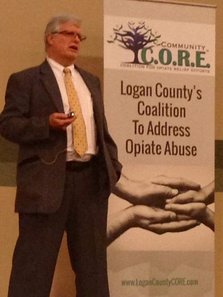 These photos are from a Community Dinner that the Logan County C.O.R.E. Coalition had back in September of this year. The Dinner was held on 9/29/16 at the First Church of God in Logan County. It was a 2- hour long event that featured Dr. Brad Lander as the keynote speaker. There was over 300 people in attendance. There was recognition of those in recovery and are leading successful lives after going through addiction and the recovery process. Also, each team within CORE spoke about its efforts in community to make Logan County Drug-Free and to help those struggling with addiction. The purpose behind the dinner was to bring a community of people together for education and awareness of what is happening in Logan County. Among residents in attendance, we had judges from other counties, local law enforcement, and even state representative Robert Sprague came to the dinner and spoke. It was a successful night full of emotion!! A local task force will be starting a new program with a grant it received recently.
The Logan County Opiate Task Force received a Health Living Grant from the AMA Foundation to fund the launch of the PERK (Positive Engagement Reaches Kids) Program for Logan County families. The program will begin on Saturday with a half-day kick-off that will feature a fun and educational day to address the impact of medicine abuse on real families, to stimulate an informal discussion, and educate adolescents about substance abuse through an engaging presentation meant to challenge their behavior towards drugs and alcohol. The kick-off will take place at Union Station from 12-4pm. Logan County Youth between 10 and 15 years of age, who are at risk for substance abuse, will be referred to the PERK Program. It is the goal of the group to include between 35 and 50 youth in this half-day event and then follow-up with ongoing after school opportunities. The PERK Program also includes a component for parents to increase their understanding and confidence in preventing and addressing drug and alcohol issues. The multi-media training program called “Parents: You Matter,” was created by the Partnership at Drugfree.org and it is designed to be co-delivered by a range of community presenters, from law enforcement, prevention and treatment professionals, as well as educators and healthcare professionals. It aims to educate parents of teens and tweens about why kids use drugs and alcohol; what parents can do to protect their children, and tips on how to communicate with their kids, monitor activities, how to spot drug/alcohol use, and what a parent should do when they find it. The Logan County Opiate Task Force was formed following the 2012 Community Health Risk and Needs Assessment, where drug abuse was identified as an area of risk and concern in Logan County. Members include: Mary Rutan Foundation, Mental Health and Drug and Alcohol Services Board of Logan and Champaign Counties, Consolidated Care Inc., Universal Home Health & Hospice Care, Kroger Pharmacy, Logan County Drug Free Youth Coalition, Logan County Family & Children First Council, Logan County Treatment Court, Joint Drug Task Force, Logan County Prosecutor’s Office, RTC Employment Services and other community partners. The local data collected by the Opiate Task Force and its partners supports the need for such a program:
“We are excited to have been awarded the Healthy Living Grant,” said Tammy Nicholl, Opiate Task Force Co-chair. “This grant allows us to continue to bring awareness and an educational opportunity to Logan County youth and their families.” |
News & Local UpdatesArticles and stories that reflect and highlight the work of the Logan County Joint Drug Task Force and other local organizations. Archives
October 2019
Categories
All
|

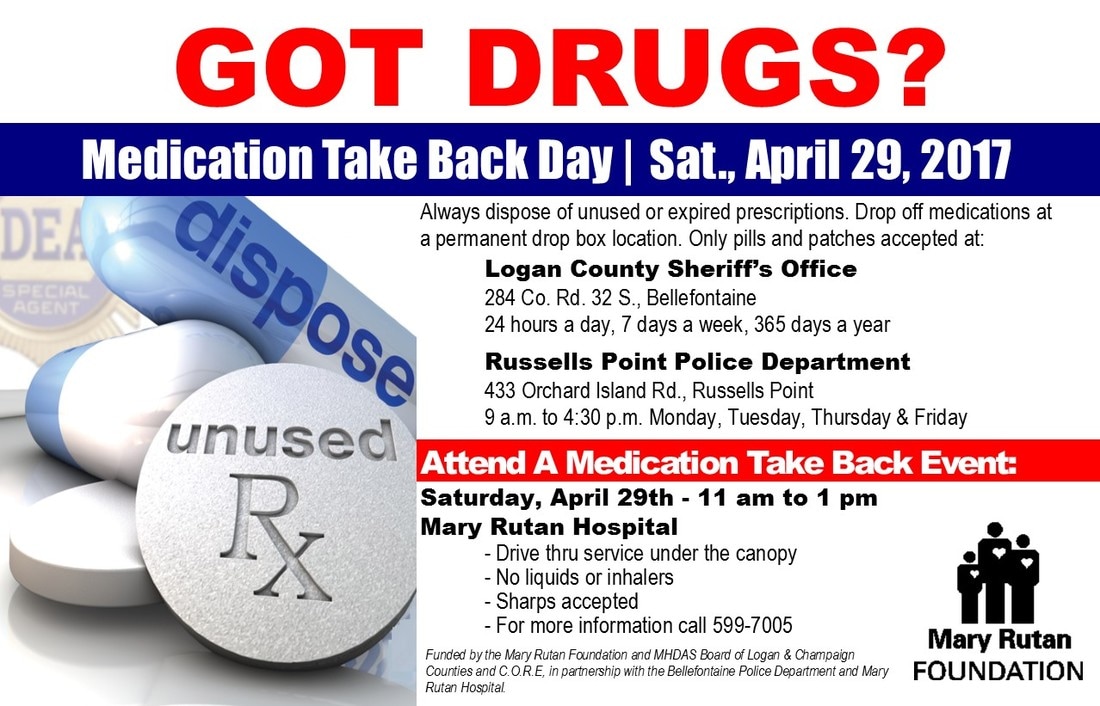




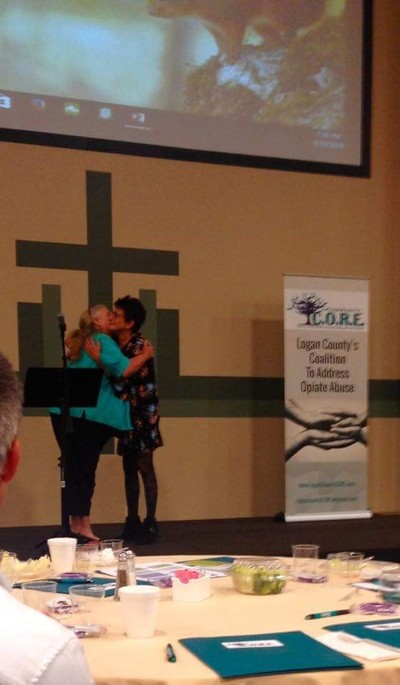
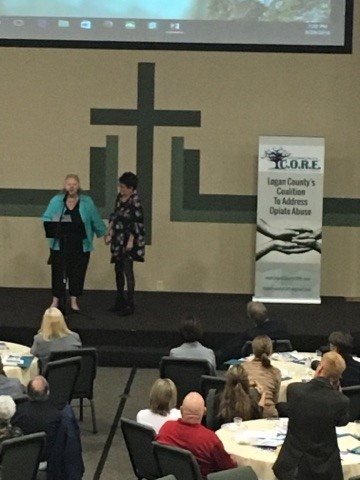
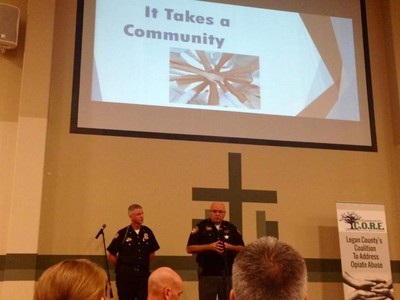
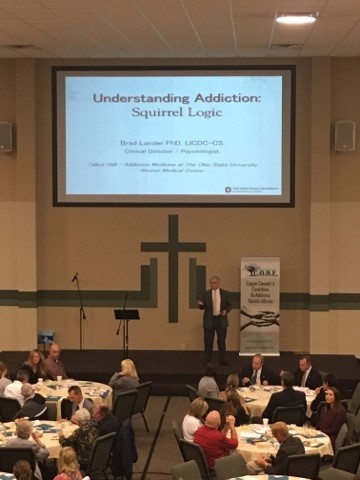
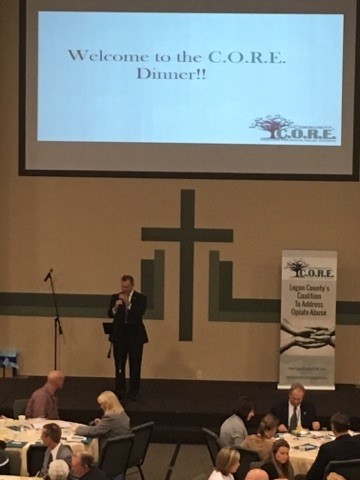
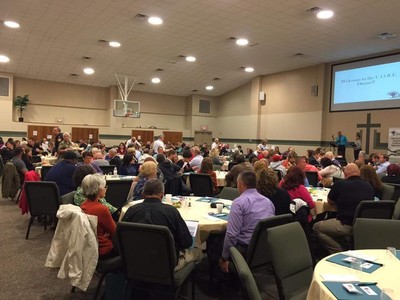
 RSS Feed
RSS Feed
